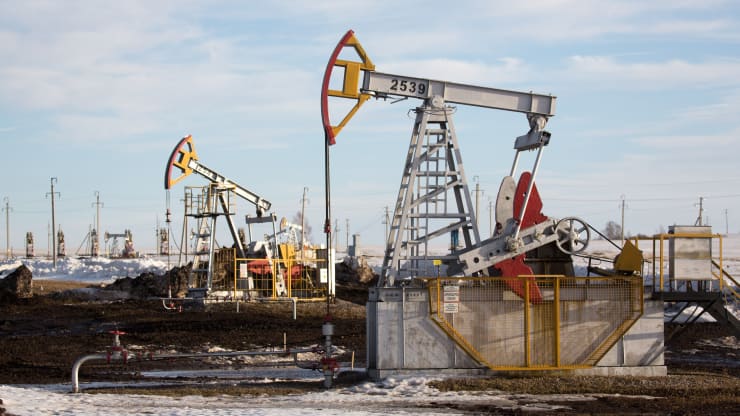As geopolitical tensions between Israel and Iran escalate, investors are seeking refuge in traditional safe-haven assets, particularly bonds, while crude oil prices surge on fears of supply disruptions.
The latest developments in the Middle East have sparked a rush to secure assets perceived as less risky amidst growing uncertainty.
With crude oil trading just over 1% higher, having given up earlier gains of as much as 4.2%, investors are closely monitoring the situation for any signs of real supply disruptions.
While there is currently no evidence of such disruptions, concerns persist that any escalation in tensions could affect oil flows through critical chokepoints like the Strait of Hormuz or lead to renewed attacks on ships in the Red Sea by Iran-backed Houthi rebels.
Edward Bell, head of market economics at Emirates NBD PJSC in Dubai, said it is important to assess whether there have been any tangible impacts on the physical supply or shipment of oil products, indicating that if the answer is negative, the premium may need to be recalibrated.
Meanwhile, Oman’s foreign ministry issued a statement condemning what it termed Israel’s repeated military attacks in the region in response to the blasts in Iran. This is the first reaction from Gulf Arab states to the reported Israeli strike on Iran.
The ministry also called for international efforts to focus on achieving a ceasefire in Gaza, where Israel is engaged in conflict with Iranian-backed Hamas, and to seek a resolution to the Palestinian issue.
Ziad Daoud, Bloomberg Economics’ Chief Emerging Markets Economist, argued that the ball is now in Iran’s court, with its next actions likely to determine the broader economic impact of the situation.
In the financial markets, bonds are emerging as the preferred haven for investors seeking safety amid the heightened tensions.
Bunds in Europe, together with Treasuries in the US, are expected to rally, reflecting investor appetite for low-risk assets.
Crude oil prices are also benefitting from the uncertainty, driven primarily by concerns over potential supply disruptions.
As investors navigate the evolving situation, the search for safe-haven assets underscores the cautious sentiment prevailing in global markets.
The geopolitical dynamics in the Middle East continue to shape investor behavior, with a keen focus on developments that could impact global economic stability.

 Forex2 weeks ago
Forex2 weeks ago


 Naira1 week ago
Naira1 week ago
 Naira4 weeks ago
Naira4 weeks ago
 Company News4 weeks ago
Company News4 weeks ago




 Naira2 weeks ago
Naira2 weeks ago
 Billionaire Watch1 week ago
Billionaire Watch1 week ago




 Naira1 week ago
Naira1 week ago




 Naira3 weeks ago
Naira3 weeks ago













